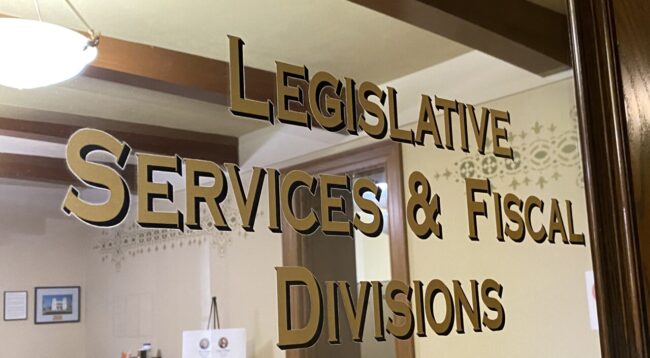![]() By Derf Johnson
By Derf Johnson

Montanans have one of the strongest — if not the strongest — right-to-know provisions in the country, which is enshrined in the Article II rights of our Constitution and deserving of the highest degree of protection. It guarantees that Montanans must have access to government records, with very limited exceptions. This right has proven essential time and time again in assuring that our government is accountable to the people, that business is done in the open and with an eye towards the public good, and that everyday Montanans are an integral part of the law- and policy-making processes.
Unfortunately, over the past several years, there has been a tidal shift in state government towards secrecy and the suppression of information. This shift recently reared its ugly head in the legislative process, when the legal arm of the Legislative Services division adopted a policy of denying public access to the files associated with bill drafts – information that had previously been accessible for the past 50 years. Thankfully, due to a rapid response from MEIC and our legal team, the files are once again available to public scrutiny and the light continues to shine into the Capitol dome – at least, for now.
The Legislative Services Division of the Montana Legislature is the agency charged with drafting legislation and associated amendments. Typically, a single person drafts legislation within a designated topic area. When legislators request a bill, it is then directed towards a specific bill drafter that will produce the draft and assist in moving it through the process. This process can be incredibly informative to the public in understanding the basis for — and reasons that are driving — the introduction of specific legislation. The records generated in this process are known colloquially as the “junque file” and include a collection of revealing information, such as previous drafts, communications with legislators and lobbyists, legal information, and other documents (such as model legislation) that may assist the public in understanding the impetus for the proposal and those backing it.
During late summer 2024 and following a Montana District Court order on a somewhat related matter, Legislative Services adopted a new policy which declared that junque files were now privileged information under a “legislative privilege,” and that the public could not have access to the information unless the legislator(s) waived their privilege. This policy was in direct contradiction to a 1995 order resulting from a lawsuit in which MEIC sued Legislative Services for access to the junque files, and the judge ordered them available for public review.
Recognizing that the new policy is inconsistent with Montana’s Constitutional right to know, MEIC and our partners took Legislative Services to court in October 2024 for its denial of several junque file requests. In a rather accelerated process, the court ruled in our favor in late January, finding not only that the public must be given access, but that it must occur expeditiously. While the decision is still subject to appeal, at least the public can access this information during the 2025 Legislature. Without question, MEIC has our attorneys to thank, including Mikaela Koski, Molly Danahy, and Rylee Sommers-Flanagan with Upper 7 Law, and Rob Farris-Olsen and Kim Wilson with Morrison, Sherwood, Wilson, and Deola.
This article was published in the March 2025 issue of Down To Earth.

